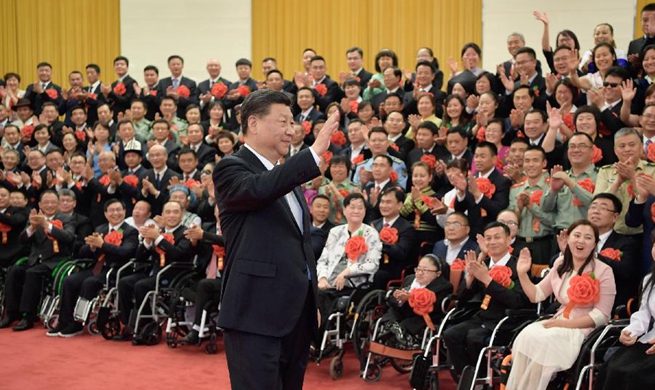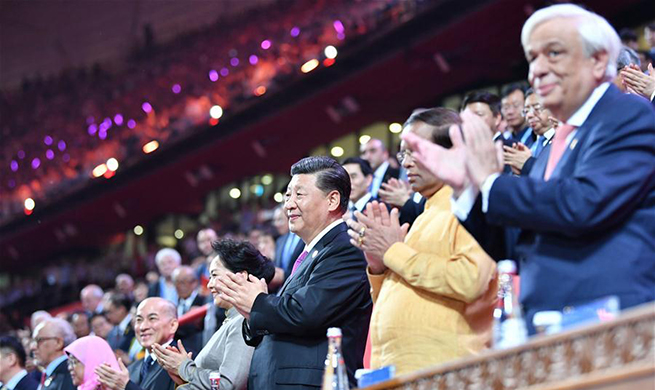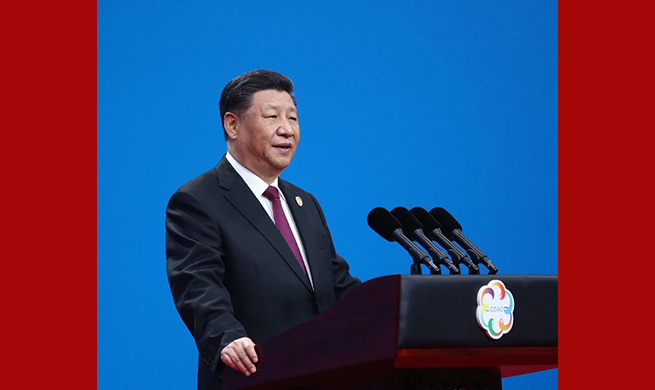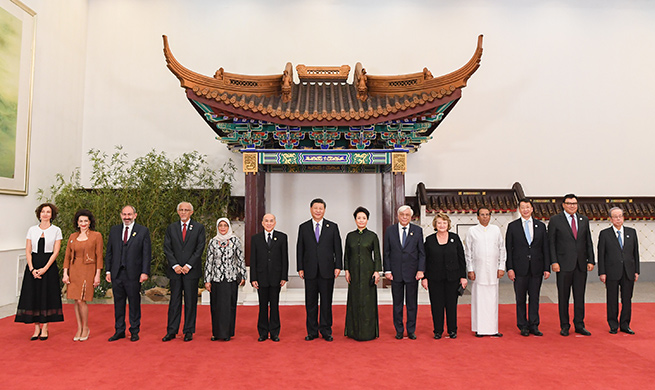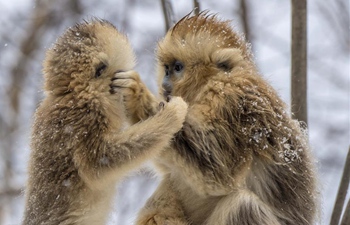GENEVA, May 16 (Xinhua) -- The Joint United Nations Program on HIV/AIDS (UNAIDS) on Thursday called on all countries to remove discriminatory laws against lesbian, gay, bisexual, transgender and intersex (LGBTI) people, ahead of the International Day against Homophobia, Transphobia and Biphobia (IDAHOT).
The key targeted populations, according to UNAIDS, include gay men and other men who have sex with men, sex workers, transgender people, people who inject drugs and prisoners and other incarcerated people.
UNAIDS said that stigma towards the key populations is reinforced by criminal laws, which in turn fuel violence, exploitation and a climate of fear, hindering efforts to make HIV services available to the people who need them.
Globally, gay men and other men who have sex with men are around 28 times more likely to acquire HIV than the general population and are much less likely to access HIV services. In 2017, gay men and other men who have sex with men accounted for 18 percent of new HIV infections worldwide.
Meanwhile, transgender people, who account for an estimated 0.1 to 1.1 percent of the global population, often face stigma, discrimination and social rejection in their homes and communities. Discrimination, violence and criminalization prevent transgender people from accessing the HIV services they need to stay healthy. It's estimated that transgender women are 13 times more likely to acquire HIV than other adults of reproductive age and that 16.5 percent of transgender women are living with HIV.
"It is critically important that we create a world where all people can access the health and social services they need without the threat of violence and discrimination," said Tedros Adhanom Ghebreyesus, director-general of the World Health Organization (WHO). "Universal health coverage means reaching all people -- sexual and gender minorities have the same right to health as everyone else."
On the eve of this year's IDAHOT, UNAIDS joins with the UN Secretary-General and the UN High Commissioner for Human Rights in calling for the decriminalization of LGBTI people, protection of LGBTI people from violence and discrimination and full access to health and other social services.
IDAHOT is observed on May 17 annually. The date was chosen to commemorate the decision to remove homosexuality from the WHO International Classification of Diseases in 1990.










